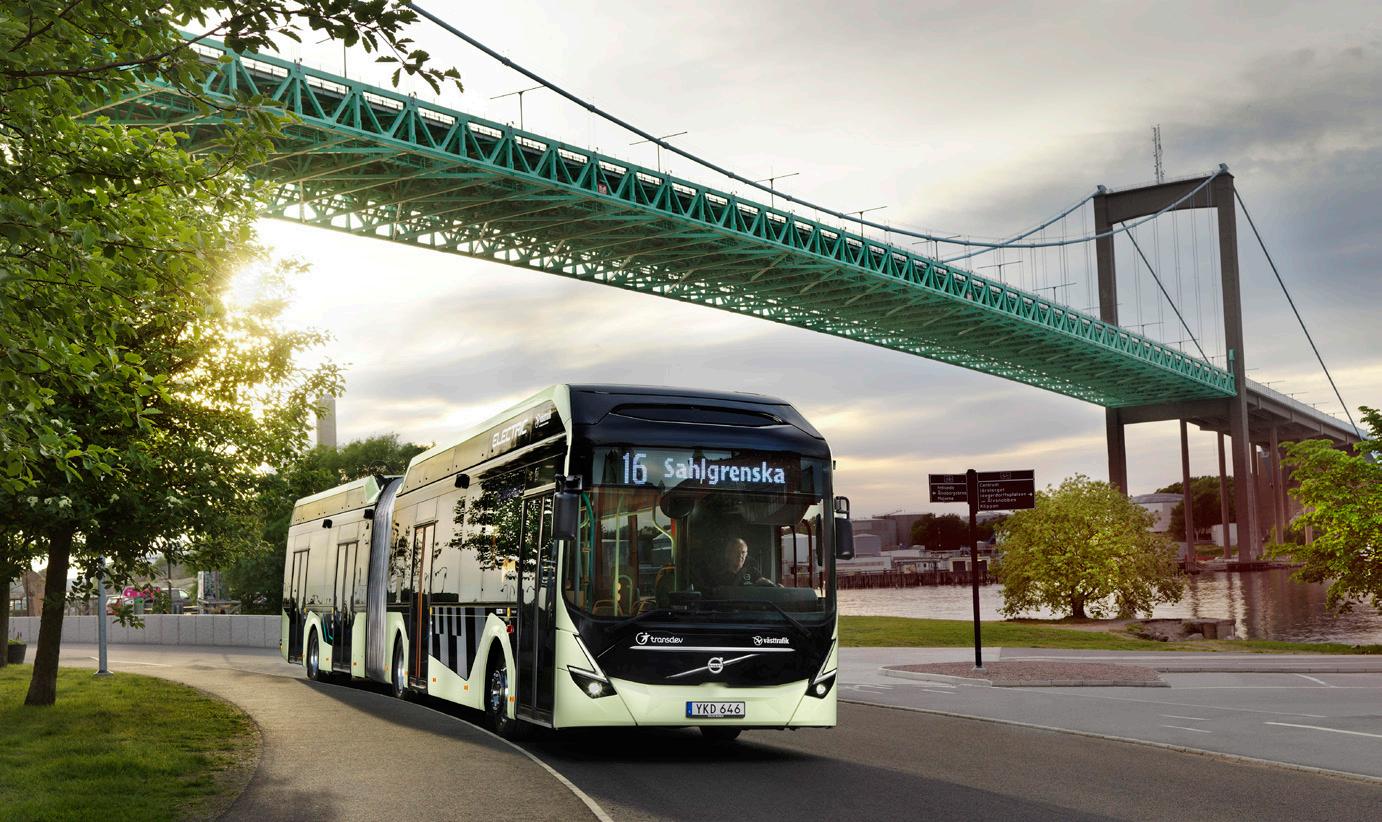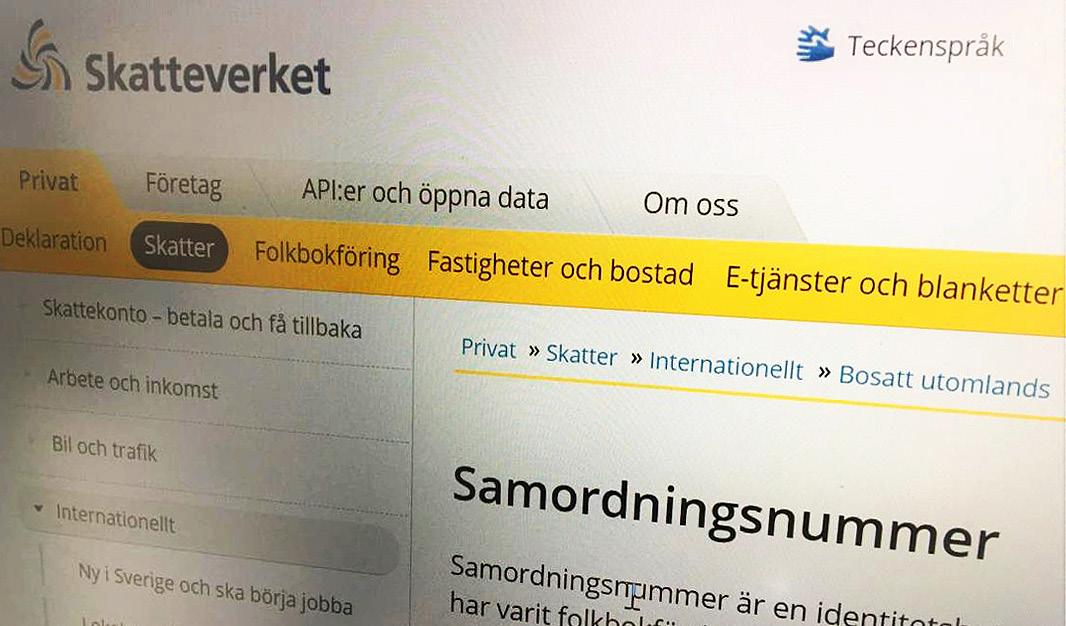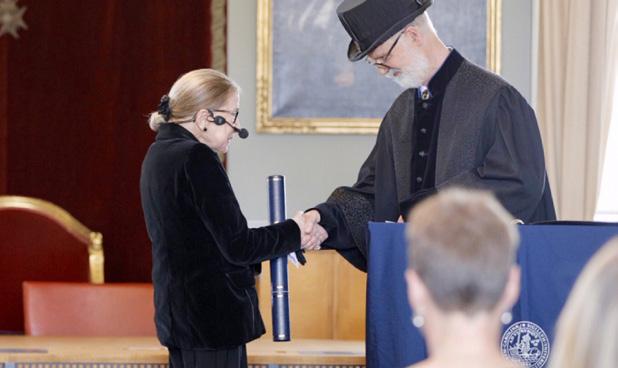
5 minute read
Road to 2045
Finding Uncommon Solutions to Common Problems
By Jakob Lagercrantz
It was in December 1987. Birgitta Dahl, the hard-nosed Environment Minister of Sweden, visited the port and refinery area close to the city of Gothenburg. She noted the high hydrocarbon emissions and named the area the “Vestibule of Hell” because of high pollution levels.
Being branded as an area close to hell was a negative eye opener. The local politicians were shocked – a minister visiting the industrial center of Sweden who had the gall to challenge them on their home turf. But the Gothenburg politicians, led by the long-term strongman of Gothenburg Göran Johansson, acted differently.
Gothenburg is the industrial center of Sweden, with several clusters of industries, including refineries. Instead of opposing his party colleague, Göran Johansson looked inwards. It was decided to form the Environment Secretariat of Gothenburg, tasked with working with industry to improve emissions. A manager was recruited

from Greenpeace, and a small secretariat was set up to identify new ways to work with industrial companies in western Sweden. 1988 was the year of the devastating seal epidemic that resulted in sick harbour seals being washed up dead on the beaches of western Sweden. Half of the western European harbour seal population was lost to the virus, and public reactions were fierce. We were only two years after Chernobyl. This was the year the Green party won entrance to the Swedish Parliament. It was a good time to promote sustainability.
The newly formed Secretariat looked for ways to involve industry in finding solutions to problems, rather than relying only on pressures coming from the legislative bodies of the city and the county. This way of working was innovative and untested. Industry was used to fight in the courts for permission to pollute. Now a group from the city, with good knowledge of the issues, wanted to discuss possible solutions. The end result would be the same: less pollution, but now dealt with by a mixed group focused on a common challenge.
The informal way of working of the Gothenburg Secretariat was another important success factor. This was not a political body, nor was it part of the control authority of the city. It was built on seeking a common interest to find solutions and was staffed by people who really understood the industrial processes. The focus was more on action than on producing reports.
The Environment Secretariat launched a number of projects that proved to be catalytic. The Secretariat asked Volvo to allow them to review the means of transport to and from the plant in Gothenburg. With external experts they suggested the emissions could be halved in ten years. Volvo looked at the figures and achieved the same goal in half the time. The catalyst was a perspective from the outside.
The same happened when the Secretariat brought in external expertise to measure the diffuse emissions from the refineries. They proved to be 10 – 20 times higher than expected, and the refineries themselves got engaged in stopping the leaks. The industry saved money by plugging the leaks – and decreased emissions at the same time.
Establishing alliances to find uncommon solutions to common problems has been a feature in Swedish societal development for a long time. It can build on and multiply the energy and innovation of the parties, with a view to discovering innovative solutions.
Route EL16: Gothenburg’s new fully electric high-capacity buses for extra services on route 16. Photo ©.goteborgelectricity.se
The Swedish 2030-secretariat was formed to support the decarbonization of the transport sector in Sweden. The secretariat is independent from political parties and technical solutions.
Swedish Press Connects [ ] Början på slutet för samordningsnummer?

Samordningsnummer är ett bekymmer för många utlandssvenskar. De digitala systemen i samhället klarar inte några avvikelser från standarden, vilket försvårar för hemvändande svenska familjer när de ansöker om plats på förskolor och skolor för sina barn födda utomlands som saknar svenska personnummer.
Samordningsnummer är en identitetsbeteckning för personer som inte är eller har varit folkbokförda i Sverige, exempelvis barn som föds utomlands av svenska föräldrar. Syftet med samordningsnummer är att myndigheter och andra samhällsfunktioner ska kunna identifiera personer även om de inte är folkbokförda i Sverige.
Kritiken mot samordningsnumren har kommit från olika håll i samhället och under en längre tid, bland annat från Svenskar i Världen. Regeringen har insett nödvändigheten av att göra en översyn av systemet för samordningsnummer och beslutade därför 2019 om kommittédirektivet Åtgärder för att minska fel i folkbokföringen (Dir. 2019:54). Uppdraget ska redovisas senast den 1 april 2021.
Utlandssvenskarnas perspektiv
Med anledning av den pågående utredningen har Svenskar i Världen, inom ramen för sitt remissarbete, återkopplat till kommittén. – Det är viktigt att tillföra perspektiv som tillhör de många utlandssvenskar vars barn har fått eller kommer att få samordningsnummer. Svenska medborgare födda utomlands av svenska föräldrar, alternativt att en av föräldrarna är svensk medborgare, missgynnas av att de tilldelas samordningsnummer istället för svenska personnummer, säger Cecilia Borglin, generalsekreterare på Svenskar i Världen.
Bland annat är det näst intill omöjligt att ställa dessa barn i kö till skolor eller förskolor vid hemflytt eftersom de digitala systemen i samhället inte klarar några avvikelser från standarden. – Inom ramen för kommitténs framtida förslag önskar vi därför att speciell hänsyn tas till dessa barn, säger Cecilia Borglin.
Svenskar i Världen anser att barn till svenska medborgare ska få svenska personnummer oavsett var i världen barnen än föds, och att de barn till svenska medborgare som idag har tilldelats samordningsnummer ska få svenska personnummer per automatik. Då samordningsnummer är en så pass omfattande utmaning för många utlandssvenskar, lyftes detta fram på Utlandssvenskarnas parlament i fjol och sammanfattades i resolutionen ”Personnummer till svenska medborgare födda utomlands, samt anpassade samhällsfunktioner för samordningsnummer”.
Svenskar i Världen har tillfört utlandssvenskarnas perspektiv i den pågående utredningen och fått besked från utredningssekreteraren att de tar med sig synpunkterna i det fortsatta utredningsarbetet. – Vi tackar så mycket för synpunkterna och att ni belyser de problem som finns ur ert perspektiv. Vi tar med oss synpunkterna i det fortsatta utredningsarbetet. Vi återkommer längre fram om vi ser behov av ett möte för att diskutera frågorna vidare, svarar utredningssekreterare Jonatan Lundqvist.

Summary in English: Every Swedish citizen and resident is given a personal identification number which facilitates the person’s access to services such as schools, medical care, banking, etc. Currently, there are two numbering systems – “personnummer” and “samordningsnummer”. The personnummer is given to individuals who are permanent residents in Sweden, while the samordningsnummer is typically given to temporary foreign residents or children of Swedish citizens born abroad and moving home. Having two systems creates some confusion in the administration of access to services in Sweden, in particular as regards returning Swedish children wishing to enrol in schools. SVIV has been active in persuading the government to resolve the difficulties by instituting a unique personal identification numbering system for all Swedish residents, whether permanent, temporary or returning.










